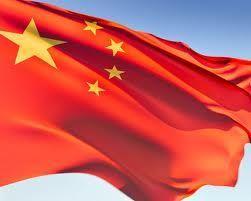
How would you describe demand for your products over Chinese New Year - were there were any particular highs or lows?
It was not an easy season for Piura Peruvian Red Globes. They arrived mainly before Chinese New Year when most consumer focus was on Chilean cherries, and when volumes of domestic grapes were still high. In addition, in general the colour was not as good as last season, which made it difficult to differentiate them from local grapes.
Initial containers of Ica Peruvian Red Globes started to arrive just before Chinese New Year. They were much better quality than Piura, but the start of the season was tough because consumers were more focused on Chilean cherries. However, prices went up considerably during the second half of February because exporters sent lower volumes in light of the low Piura prices.
South African red, white and black seedless grapes performed quite well up until just before Chinese New Year. Then a large volume of black seedless arrived on the market making it tough for some weeks. This caused a decrease in volumes loaded at that time from Chile and South Africa, so by mid-March there was a recovery in prices and better sales movement.
Indian black seedless grapes haven’t performed well in China in recent years, but we are working on this because we believe that there is a niche for this product as long as the fruit packed matches Chinese consumer requirements.
At this time we are at the start of our Chilean grape season, Chilean galas, Spanish oranges, Spanish mandarins and we are preparing our South African citrus season, which mainly include grapefruits and oranges.
How would you describe market conditions now, post-Chinese New Year, and how is demand shaping up for the coming months?
In general, the market for grapes is stable in term of prices. We expect a slowdown in prices when the main volume from Chile arrives in mid-April, but this may pick up again in May.
Recently, oranges (mainly Navelates) from the US and Spain have gone up in price because the domestic citrus season is over and the quality is good. However, prices for Egyptian oranges are still low.
The Chilean gala season should start with good prices, but it’s a bit too soon to predict the market because it will depend on the volume shipped from New Zealand and certainly the volume shipped from Chile as well.
We are preparing our South African citrus season. A severe drought and hailstones have affected the crop, which is expected to be down by 20 per cent with a preponderance of smaller sizes. This may limit volumes shipped to China.
Are the slower economic conditions in China having an impact on your imports there?
Not really, growing economically at a rate of 6 per cent annually is not bad at all if you think that China has been growing for several years at 10 per cent or more.
China has achieved a level of wealth and a big middle class with enough income to spend on healthy and trendy products. If you look at local production versus imported fruits then you realise what a small percentage imported is. So with the growth of the middle class the economic conditions have barely no impact on imported fruit sales.
Are lemon sales still going crazy because of the detox diet?
Health is one of the most frequently-used words in the Chinese vocabulary, so a product that helps maintain health and is marketed well has great potential to increase sales. For example, when you go to some restaurants they serve water with some lemon slices, which besides being healthy helps you feel cool on hot summer days.
South African lemons, however, are not coping well with the phytosanitary treatment, so less supply is coming from there, which means strong prices for other countries.
Are there any particular trends you’ve noticed, or challenges, facing fruit importers in China?
There is a trend to over import by rogue traders after a certain product has done well in a given season. The increased volume puts pressure on prices. As a responsible importer you should have a balanced volume so you can deliver fair-priced fruit all season long.
Is there anything else you’d like to add?
The fruit market is a delicate market that is very responsive to supply and demand changes. It takes skill and knowledge to be a fruit trader. There is no place for quick one-day traders.



